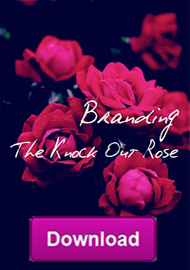 Honesty is the pillar of the public relations industry, and an honest reputation is the most important asset of any organization.
Honesty is the pillar of the public relations industry, and an honest reputation is the most important asset of any organization.
The public evaluates professionals based on their reputations.
Positive reputations are difficult to build, and lying is the major reason that public relations professionals lose their credibility.
Professionals must be conscious of their organizations’ past, present and future stakes, not just those of the “here-and-now.” One present mistake may cause temporary bad publicity — but lies to conceal mistakes, once exposed, create much more damage for a long-term reputation.
Continue reading to learn why honesty is always the best policy when it comes to PR.
Honesty First
Lying professionals lose their reputation once they’ve been caught being dishonest. Also, they can give honest public relations professionals a bad name by association.
No one wants to make their client or team look bad by openly admitting something went wrong. However, it’s dangerous to quickly conceal mistakes without thinking about the long-term consequences of dishonesty.
When a practitioner admits a mistake, the situation is still in their control, and they can fix the problem using their professional skills.
By lying, they put their own reputation and the client’s reputation at risk — and that’s a dangerous game, the kind that compromises personal integrity and leaves too much to chance.
Maintain Relationships
Networking is essential in public relations. Honest leadership in the workplace sets positive examples, paves the way for future connections and promotes transparency.
Both internal and external connections are important. Credible organizations may build relationships with other organizations more easily than those with reputations for dishonesty.
Internally, honesty may represent a pillar of workplace values, encouraging employees to follow a high moral standard.
Professionals are aware that their actions impact their immediate team as well as the whole organization. They embody the anchor of public relations values and carefully consider the consequences of their actions for everyone involved.

Influence Public Opinion
Australian-based 7-Eleven franchises recently came under fire for repeated accounts of lying, including the distribution of a misleading statement and a blatant lie in the opening line of a press release.
The company is experiencing a “crisis in confidence” after multiple scandals, wage fraud and underpayment caused a “PR disaster.” In this case, ambiguity and miscommunication made the problem worse, giving 7-Eleven franchises a negative reputation.
By upholding good morals, an organization builds a positive reputation — the kind that can’t be created artificially. A good reputation gains momentum over time, so it’s important that public relations practitioners and their clients choose an honest moral code and stick with it, especially during times of crisis.
Although long-term decisions may be difficult to evaluate, a good public relations professional recognizes the value of upholding an organization’s reputation in all circumstances.
The public will be more willing to support a professional or an organization that communicates to fix its mistakes, rather than one that experiences a scandal after trying to cover something up. In the long run, the fallout from a temporary mistake wields less severe consequences than those associated with concealing the truth and being exposed later on.

Even When It Seems Like No One’s Watching
Honest public relations professionals operate under the assumption that if they are lying, they will be exposed. They communicate openly, remembering that they represent a mission larger than themselves; they also propose solutions to problems rather than glossing over them. Professionals trust the public, their coworkers and their clients to handle the truth.
Credibility necessitates constant honesty and a consistent track record. Because the public relations industry focuses on communication, professionals need to set examples by upholding the highest standards in their own communicative practices, for both practical and moral reasons.















